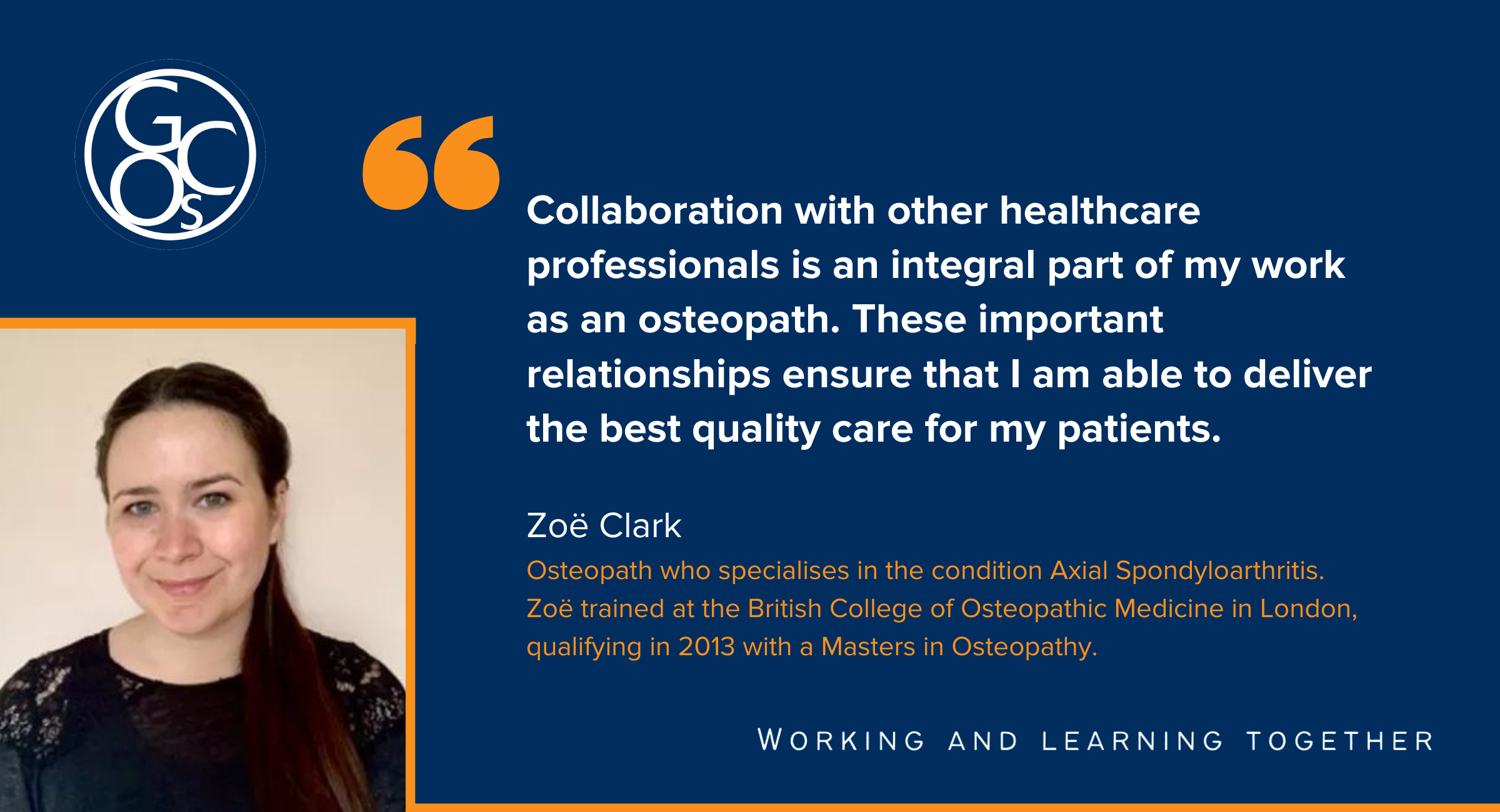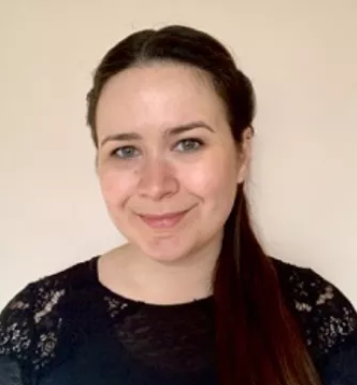Collaboration with other healthcare professionals is an integral part of my work as an osteopath
12 January 2022
Zoë Clark highlights how sharing knowledge through collaborative working can help deliver improved outcomes for patients.
I qualified as an osteopath in 2013 and since then I began to specialise in Axial Spondyloarthritis (axial SpA). Recognition of my expertise in this condition is growing and I’m often invited to give talks to local osteopath and chiropractor groups as well as local GP surgeries. It’s a great opportunity to educate other health professionals who may be unfamiliar with the condition.
I am also involved with the National Axial Spondyloarthritis Society (NASS), a charity that supports people with axial SpA. Here, I worked alongside a rheumatologist, chiropractor and other osteopaths to achieve a shared goal - to help patients with the condition get access to treatment quicker. Early diagnosis and intervention are essential to improving patient outcomes.
As well as putting together educational talks, we developed a template referral letter that health professionals can send to a GP to support the diagnosis of axial SpA. There can often be delays in diagnosis, so the template letter – which has now been endorsed by the Royal College of GPs and the Chartered Society of Physiotherapy – is designed to help patients get a GP referral for the right treatment.
Meeting patient needs
Over the years I have built a trusted referral network by attending local CPD events and engaging with other healthcare professionals. Through this network I can confidently refer patients to the right expertise for specific treatment. For example, I recently treated a patient who was recovering from surgery on their spine. I don’t have a considerable amount of post-surgical experience so I referred them to a local physiotherapist who I knew would be able to provide the most effective treatment for the patient.
I also refer patients to a physiotherapist who specialises in treating people with complex needs such as Parkinson’s disease. His practice is set up to provide exercise rehabilitation, so it provides the right support for patients with complex needs.
This referral approach is reciprocal. The healthcare professionals in my network also recognise my skills as an osteopath. Recently a patient with hypermobility was referred to me because the physiotherapist knew my interest in this condition and that I would be able to deliver the best outcome for the patient.
Working with other healthcare professionals has improved my understanding of the different approaches and therefore the most beneficial course of action for a patient. In my experience, when healthcare professionals work together, we become stronger in our ability to achieve positive change and improve patient outcomes.

Communicating with GPs
Building relationships with GPs can be harder than with other health professionals, but writing referral letters can help to build those links. I try to keep letters short and highlight the key points that demonstrate my knowledge and expertise. This continues to be particularly important during the pandemic when GPs are under considerable pressure.
Changing perceptions
Like many osteopaths, I have come across other health professionals who perceive osteopathy as an alternative medicine. Thankfully, this is changing and becoming an Allied Health Professional (AHP) has been helpful in changing perceptions. Other healthcare professionals are learning about what osteopaths can do and how our work can benefit patients.
Twitter is a useful platform to engage with other healthcare professionals such as physiotherapists and occupational therapists. I use my account to raise awareness of axial SpA and highlight the benefits of seeing an osteopath. It helps to build confidence in osteopathy and also gives other healthcare professionals an understanding of a condition that is commonly misdiagnosed.
To reinforce that osteopathy is a serious profession, I make it clear on my Twitter bio that I’m an AHP and, where relevant, I link to research to demonstrate our evidence-based approach.
Collaboration with other healthcare professionals is an integral part of my work as an osteopath. These important relationships ensure that I am able to deliver the best quality care for my patients.
About Zoë
Zoë Clark is an osteopath who trained at the British College of Osteopathic Medicine in London qualifying in 2013, she is also a lecturer and iO Council member. Working for a national patient organisation as Senior Self-Management Programme Officer, Zoë collaborates with a variety of healthcare professionals to provide support to people across the UK living with axial SpA




